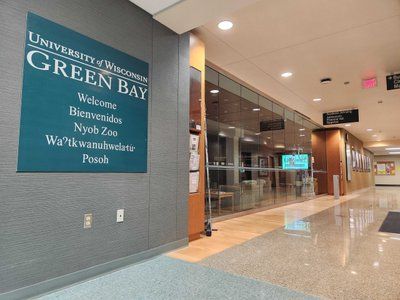By Tom Still
MADISON – It’s hard to think of an academic research field today that isn’t driven by the ability to analyze, send and receive huge sets of data.
From genomics to astronomy, and from biotechnology to medical imaging, scientific research today is inexorably linked to high-end computing and network connections.
That’s why a proposal pending in the state budget to restrict the ability of the UW System to take part in network consortia such as Internet2, BoreasNet and similar data pipelines makes little sense. It would hamper the ability of researchers in Madison, Milwaukee and across the UW System to do what they do best – make discoveries and push those ideas closer to the marketplace.
On the one hand, it’s understandable why a trade group representing rural telecommunications companies is upset that the UW System won a $32.3-million federal grant to pay for community networks and to improve broadband service for public entities, such as schools, libraries and municipal buildings. Those companies view it as the UW System competing with private carriers who need a mix of large and small customers in order to stay afloat.
If the UW System “cherry-picks” the larger customers, those carriers could be left to serve residential customers and small businesses only. In real-estate terms, they’re deprived of their anchor tenants.
If that’s as far as the state budget proposal went, it would seem like a classic case of drawing clear lines to prevent government from competing with private industry.
But the language recommended for inclusion in the state’s 2011-2013 budget appears to go much further, threatening long-standing contracts between the UW’s research centers and cutting-edge networks that were specifically designed to handle massive amounts of data.
“The implications for this are so dire, as to be unbelievable,” said Ed Meachen, chief information officer for the UW System. “We would have to resign from Internet2 (and) BoreasNet. These are huge federal government research networks that are mandatory for many of our federal grants. We have a billion dollars in grants at UW-Madison. We don’t know how many tens of millions of dollars we won’t be able to get because we are not members of Internet2.”
At the UW-Madison, for example, the language could jeopardize projects such as large as the international IceCube neutrino observatory at the South Pole or as small as start-up companies in University Research Park that require reliable access to large amounts of data.
In a sense, today’s research networks that connect major universities across the nation go back to the dawn of the Internet itself. Those networks were created because commercial carriers could not provide cost-effective, high-speed connections.
Being able to extend broadband to a library in Medford is one thing; transporting “bursts” of data through a secured national network is quite another.
Consider the Morgridge Institute for Research, which recently opened as the private R&D arm of the Wisconsin Institutes for Discovery. Its research projects are all “interdisciplinary,” meaning they involve a mix of sciences: biotechnology, medical devices, medical imaging, information technology and nanotechnology.
“At the Morgridge Institute, we’re very dependent on our ability to connect with leading-edge networking technologies,” said Dr. Sangtae Kim, director of the institute. Kim was once a division chief within the National Science Foundation, which worked to build high-end cyber-networks for researchers.
What began as an effort to ensure that rural telecom companies have a fair shot at competing appears to have evolved into a threat to the UW System’s research engine, which helps to drive innovation and economic development statewide.
As lawmakers complete their work on the state budget, they should be careful to distinguish between creating a level playing field for commodity broadband services and killing networks that exist to move massive amounts of scientific data.
Still is president of the Wisconsin Technology Council. He is the former associate editor of the Wisconsin State Journal.
###





